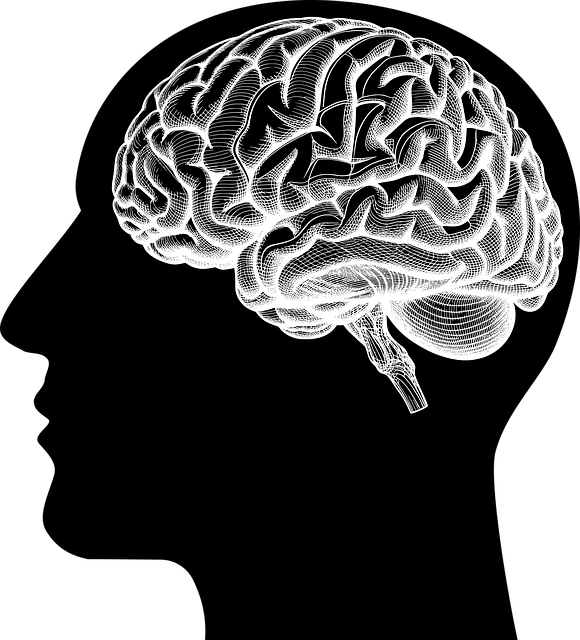Cultural competency is vital for healthcare providers in diverse communities like Colorado Springs, addressing communication barriers, misdiagnoses, and burnout. By enhancing emotional intelligence through journaling and culturally tailored training, therapists can improve patient outcomes, especially in couples therapy, where effective communication overcomes language and cultural differences. Interactive workshops and mindfulness meditation are key strategies to build resilience, reduce stress, and enhance therapy success for Colorado Springs couples facing communication issues.
In today’s diverse healthcare landscape, cultural competency is no longer a nice-to-have skill but an essential requirement. This is particularly true for cities like Colorado Springs, known for its vibrant and varied community. Effective communication—a cornerstone of quality patient care—is often impeded by cultural differences, especially in the context of Colorado Springs’ multicultural population. This article explores these challenges, focusing on communication issues faced by couples seeking therapy in the region. It also delves into effective training strategies to enhance cultural competence among healthcare providers.
- Understanding Cultural Competency in Healthcare: A Vital Skillset for Providers
- Colorado Springs: A Diverse Community Demanding Tailored Approach
- Communication Barriers and Their Impact on Patient Care
- Training Strategies to Enhance Cultural Competence in Therapy Settings
Understanding Cultural Competency in Healthcare: A Vital Skillset for Providers

Cultural competency is a crucial skillset for healthcare providers, especially in diverse communities like Colorado Springs. It involves understanding and appreciating the cultural differences that shape individuals’ experiences, beliefs, and behaviors, including their approaches to health and wellness. In today’s interconnected world, where patients come from various ethnic backgrounds, religions, and socio-economic statuses, this competency is no longer a nice-to-have but an essential tool for effective patient care.
Healthcare providers who lack cultural awareness may encounter communication issues, misdiagnoses, or even burn out due to the emotional toll of navigating complex cultural dynamics. For instance, what might be considered normal behavior in one culture could be disruptive or offensive in another. Emotional intelligence, a key component of cultural competency, enables providers to manage their own emotions and understand those of their patients, fostering better connections and outcomes. Even simple practices like journaling exercises focused on mental wellness can help professionals navigate these complexities, preventing burnout and enhancing patient-provider relationships, particularly for couples facing communication issues in therapy.
Colorado Springs: A Diverse Community Demanding Tailored Approach

Colorado Springs is a vibrant city known for its diverse community and unique challenges. With a population comprising various cultural backgrounds, ethnicities, and languages, healthcare providers in this region must be adept at navigating complex communication issues. The city’s demographic tapestry presents an opportunity for culturally competent therapy, where emotional intelligence plays a pivotal role.
Effective Healthcare Provider Cultural Competency Training is essential to address the specific needs of Colorado Springs residents. By focusing on communication strategies tailored to diverse populations, therapists can improve patient outcomes and build stronger connections. This approach ensures that couples seeking therapy feel heard and understood, fostering an environment conducive to healing and growth.
Communication Barriers and Their Impact on Patient Care

In healthcare settings, communication barriers can significantly impact patient care, especially in diverse communities like Colorado Springs. Language differences and cultural disparities often lead to misunderstandings and miscommunications between patients and providers. These obstacles can hinder the accurate assessment of symptoms, confuse treatment plans, and result in suboptimal outcomes for patients, particularly those from minority backgrounds or with limited English proficiency (LEP). For instance, a study revealed that LEP patients in Colorado Springs couples therapy reported higher levels of dissatisfaction due to communication issues during their sessions.
Overcoming these barriers is crucial for effective patient-provider relationships. Training in cultural competency helps healthcare professionals develop strategies to navigate language and cultural differences, ensuring quality care. This includes learning sign languages, providing interpretation services, and adopting inclusive communication practices that respect and consider diverse backgrounds. By addressing communication issues, mental health advocates can foster a more welcoming environment, improve access to care, and contribute to initiatives like Mental Illness Stigma Reduction Efforts and Mental Health Policy Analysis and Advocacy. Additionally, promoting Self-Care Routine Development for Better Mental Health among patients from diverse communities can be a powerful tool in mitigating the impact of these barriers.
Training Strategies to Enhance Cultural Competence in Therapy Settings

Effective training strategies are essential to enhance cultural competence in therapy settings, especially in diverse communities like Colorado Springs. One powerful approach involves interactive workshops that encourage open dialogue and role-playing scenarios. These sessions can help therapists navigate complex cultural nuances, improve communication skills, and develop a deeper understanding of their clients’ backgrounds. By fostering empathy and resilience building, therapists can create a safe space for individuals to address personal challenges, including Colorado Springs couples communication issues therapy.
Additionally, integrating mindfulness meditation and self-care routine development into training programs can significantly benefit mental health practices. These techniques promote cultural sensitivity by encouraging therapists to be present, aware, and attentive to their clients’ needs. Through regular practice, therapists can enhance their emotional resilience, reduce stress, and provide more effective support, thereby improving overall therapy outcomes in diverse settings.
Cultural competency training is a transformative tool for healthcare providers, especially in diverse communities like Colorado Springs. By addressing communication barriers and implementing tailored approaches, therapists can significantly enhance patient care for couples navigating Colorado Springs’ unique cultural landscape. These strategies ensure that therapy settings become more inclusive, effective, and responsive to the specific needs of their clients, ultimately improving outcomes for those seeking support for their communication issues in therapy.














